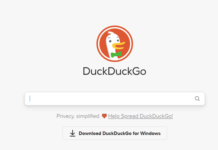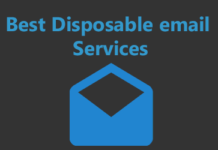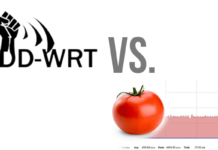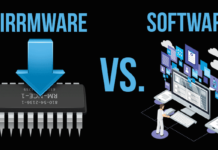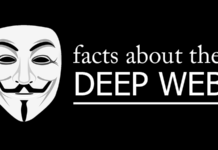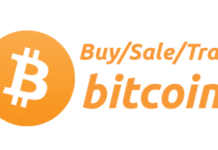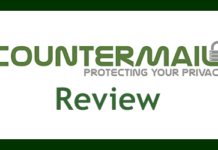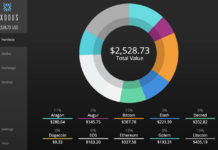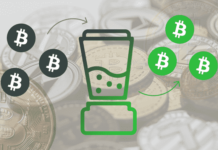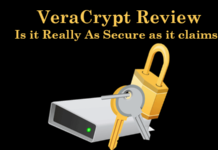I intend to make this website unblocker guide a very detailed one. Hence, I’m covering the following points throughout this piece.
Hence, if you’ve got the patience (and you’d like to understand what it’s all about), keep reading.
If you’re short on time and need a direct answer, go with NordVPN.
It’s the best way to unblock websites, add security to your connection and make youself invisible on the web.
What’s NordVPN and why NordVPN? For that you’ll have to go through the fine print.
Get 75% Reload up to 1 BTC First Deposit Bonus + 75 Free Spins at mBitcasino
How are Websites Blocked?
Before I list out the best website unblockers and unblocking techniques, I believe discussing this is important. If you understand how your problem is created, you can solve it better, don’t you agree?
Who Blocks Websites?
Before the how, let’s answer the “who”. Who on planet earth has enough power to block the omnipresent internet, eh?
- Your ISP: ISP stands for “Internet Service Provider”. It’s the company whose internet you’re using. ISPs block individual websites either for personal, business, social, moral reasons, or by a govt. order. These blocks are generally ISP-specific and you can access the website simply by switching to a different ISP.
- Your Govt.: This is the more common type of block. Your govt. orders either some, or all ISPs in your country/region to block certain sites. This may be for political reason (g. China) or social/moral reasons (e.g. India/Dubai).
- The website itself: At times, the govt. or your ISP doesn’t block websites from their end. Rather, they ask the websites in question to block traffic from your country/region.
Those are the three primary entities who block websites for you.
What is the IP Address?
I’ll obviously get to the “how” part of websites being blocked. However, let’s first address a very basic question- what exactly are IP addresses? You need to understand this if you wish to understand this guide further.
Imagine it like a phone number, just for the internet. Just like how a phone number helps you call someone’s phone, an IP address helps you send and receive information from a device on the internet. Every device that connects to the internet has a unique IP address.
This means, you have an unique IP that’s provided just to you. This also means the IP address can be used to identify you, your location, and your activities on the internet.
How are Websites Blocked for You?
Now, there are multiple ways how websites are blocked.
However, note that no entity (the govt. or your ISP) can completely and entirely block the website from the internet. This is because no one “owns” the internet.
The most common way of blocking a website is that the blocking entity blocks the IPs that are in its control from accessing a specific website/IP address (for this blocked website).
E.g. your ISP may block all its IPs from accessing a website. The govt. may block all the IPs from its country from accessing this website as well.
However, the website still stays accessible for people either using different ISPs, or from other regions/countries.
How to Unblock Websites Using Website Unblockers?
There are three major website unblockers I’ll be discussing in this piece that are VPN services, Proxy Service and Tor Browser. But VPN service is a Very popular and most secure method. VPN offers security features like military grade encryption, DNS Leak, Kill Switch, No Log Policy, Split Tunneling and etc.
The VPN
This is the most common, easiest to use and most feature-rich method of unblocking websites.
The VPN stands for “Virtual Private Network”. Despite it sounding complex, it’s not. I’ll explain.
It’s a simple software which basically removes all the control your ISP or your govt. has on your “IP Address”.
As mentioned earlier, websites are blocked because the blocking entity has control over your IP address. They decide what content you can or can not access.
However, what if you changed/replaced/masked this IP address?
The IP address is how your ISP/govt. knows who you are. But if that’s changed or masked, they can not identify you now and hence can not put restrictions on you.
That is exactly what a VPN does. It masks your original IP address and provides you with a new one. This new IP is then used by your system to browse anything and everything on the web.
Best VPN Service for Unblock Website
| NordVPN | Surfshark VPN | AtlasVPN | ExpressVPN | TorGuard VPN |
|---|---|---|---|---|
1. NordVPN | 2. SurfShark VPN | 3. AtlasVPN | 4. ExpressVPN | 5. TorGuard |
Which VPNs are The Best to Unblock Websites?
Not all VPNs are created equal. While all VPNs offer the exact same core feature (offering you a new IP and replacing your old address), however, they aren’t the same.
When picking a VPN, you must ensure:
- That the VPN doesn’t store logs. It must have a “no log” policy.
- That the VPN “TRULY” is no log. All VPNs claim they do not store logs. Many have been caught lying and conspiring with the FBI and other governments. Hence, your VPN must have a “publicly and independently audited” “no log” policy.
- Speed: All VPNs reduce speed (all the encryption and routing eh?). Hence, you must pick the best ones if you need the best speeds. The ones on this list have negligible and not noticeable affects.
- Security: VPNs also add massively to your security. Some VPNs offer more security features and protocols than others.
While there are other feature differences as well, these are the most important as far as unblocking websites go.
NordVPN
![]() Website: https://nordvpn.com
Website: https://nordvpn.com
NordVPN is the best tool to unblock website for a number of reasons.
For starters, it’s capable of blocking even the biggest bad boys. Netflix, a billion dollar company has the strongest content firewall we’ve ever seen. However, NordVPN is able to unblock over half a dozen content libraries (content from specific countries, not available in others) in a single click. Most VPNs fail here.
In fact, NordVPN is so strong it has servers specialized for onion (deep and dark web access )
Oh, and speed isn’t a problem either. It’s easily the fastest VPN I’ve ever used.
NordVPN also offers a ton of features you don’t get with other VPNs. Meshnet, Ad-blocking, Double VPN, split tunnelling, P2P and torrenting support and a lot more.
It’s also dirt-cheap + there’s a 30-day “no questions asked” refund policy. If it can’t unblock what you’re trying to, you get all of your money back.
Cyber Deal: Get 68% off + 3 Month Free
Surfshark
![]() Website: https://surfshark.com
Website: https://surfshark.com
Surfshark is another tool to unblock websites and is a VPN. It too is nearly as rich as NordVPN in terms of features. In fact, it allows unlimited devices to use the VPN simultaneously which gives it an edge.
It too can unblock websites and even has a “camouflage mode”. This makes sure your VPN isn’t detected even by the harshest ISPs/governments. Just what you need eh?
It too is one of the fastest VPNs (why else would I include it here) and you do get the 30-day refund policy as well.
No logs are kept, ads are blocked, double VPN is available and many other features exist which you won’t even use.
Cyber Deal: Get 83% OFF and 3 Month Free
AtlasVPN
Website: https://atlasvpn.com/
![]() This one is another VPN capable of unblocking websites. Again, very impressive speeds, verified “no log” policy and the 30-day refund policy.
This one is another VPN capable of unblocking websites. Again, very impressive speeds, verified “no log” policy and the 30-day refund policy.
It actually offers features that even Nord and Surfshark don’t, “SafeSwap” and “MultiHop+”, however, you won’t need these as far as simply unblocking websites go.
Unlimited devices, no bandwidth cap, compatibility with nearly every device are some other reasons why it’s on this list.
Point is, if you need to unblock websites, these 3 VPNs are your best bets.
But hey, VPNs aren’t the only tools which let you access blocked websites.
Proxies
I like to call proxies the little brothers to VPNs who didn’t go to college. I say that because proxies offer essentially the same core-feature as VPNs, but with way less security or stability.
- Proxies too change your IP address.
- Proxies often don’t need a “software” to run and can be configured directly in your browser. Although, optional software is mostly available if you need it.
- Configuring proxies is generally slightly harder than connecting to a VPN (which is generally a single click).
- Proxies are less secure because most proxies do keep logs. Hence, your original IP address is always stored with them.
- Proxy servers also may not encrypt your connection like VPNs do. They also lack most other “security” features that you get with VPNs.
- In some cases, proxies are faster than VPNs due to the lack of encryption and less routing (especially in contrast to features like DoubleVPN).
- Proxies may change your IP address but they’re also often and more easily detected by websites, especially by Netflix and other similar big guys.
- It’s a myth that proxies are cheaper than VPNs. The “per IP” cost may be low, however, most proxies stick to a monthly plan which is almost equal to, if not more than a VPN. Obviously, there are exceptions to this rule.
In a nutshell, proxies do work and let you unblock websites even though not as many, or as securely as a VPN.
Which Proxies are Best for Unblocking Websites?
Alike VPNs, proxies too differ in terms of pricing and features. For now, these are the ones I’ve got some personal experience with:
- InstantProxies: InstantProxies plans start at $10.00. You get 10 IPs, unlimited bandwidth and 2 cities on this plan.
- SmartProxy: This one doesn’t charge you based on the no. of IPs, rather, you pay for the “bandwidth”. You get access to over 40million IPs on all plans.
- PIAProxy: Access to over 50 million IPs, plans starting as low as $0.05/IP.
Use Tor Browser to Unblock Websites
This is a 100% free solution to access blocked websites.
Tor is a web browser. It’s very special because it’s actually used to browse the deep/dark web.
It’s used to browse the deep web because of its “onion routing” feature, which is what helps you unblock websites.
Basically, every request you send using Tor browser (to browse a website) is actually not sent directly to the website.
Rather, it’s first routed through multiple nodes. These nodes are volunteer-run. They also do not have any idea of your original IP.
The only caveat? Tor browser turns off JavaScript and may redact some features to boost routing and security. This leads to the websites not loading properly, especially those containing dynamic graphics, banners, sliders etc.
However, if you’re simply unblocking a website that may not have a lot of dynamic content, Tor is actually your best (and free) bet.
Frequently Asked Questions (FAQ)
Here are a few FAQs I’d like to answer about unblocking websites:
Is using website unblockers legal?
Yes. Absolutely. Using website unblockers is completely legal. Obviously, what you access with them decides the true legality of the case.
Can I be traced if I use website unblockers?
Again, this depends on which unblocker you’re using. First, are you using a VPN, a proxy or something else? Then, which VPN/proxy/ browser or other tool you’re using exactly.
E.g. VPNs like NordVPN have proven that they do not store logs. This has been proven independently and publicly. Hence, even when forced, they have nothing to share about you.
Does a VPN change my IP address?
Well, not exactly. That’s a common misconception around VPNs. VPNs, proxies or most other similar tools do not exactly change your IP address.
What they do is mask your IP address. Meaning, they act as a mediator. They offer you a replacement IP and then you connect to the internet using this replacement IP.
Your original IP still exists, it’s just that the websites you visit now do not see it. They see this new IP. Similarly, your ISP too can now only trace your connection till it hits the VPN servers. Once it’s replaced, your IP has no idea what you’re doing anymore.
Conclusion:
NordVPN. There’s no doubt to it. It’s the easiest to use, the fastest, most secure and surprisingly one of the cheapest ways to unblock websites.
In general, I’d suggest going with the VPNs to unblock any website/content on the web. You can then maybe go with proxies or Tor. These two latter options are less secure and offer less features overall.
Obviously if security isn’t a concern to you and you only wish to remove blocks, in that case proxies may be the better option.
I’d better sign off this piece eh? I’d recommend go try NordVPN (remember, you technically aren’t paying for the first 30 days if you don’t like it).
